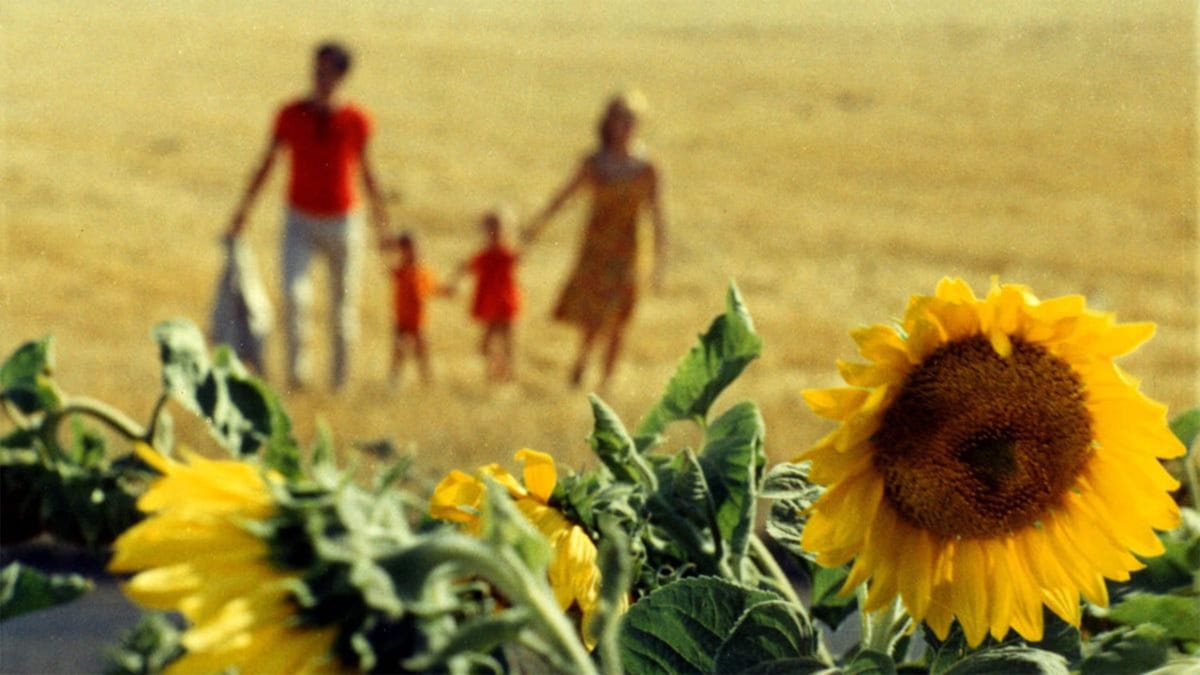
French New Wave film is no stranger to unconventional storytelling. The genre thrives upon dramatizations of life's mundanities, an era particularly concerned with philosophical explorations, and often, these heavier, more nuanced topics are accompanied by visuals so striking that one can be both entertained and radicalized by a film. I find this latter point to be particularly relevant within the directorial works of Agnes Varda, who consistently uses film as a lens to evoke thoughtful images of the female perspective and gendered complexities. What strikes me as unique within Le Bonheur, and what contributes to its conceptual ambiguity, is that it is shot entirely from Francois's (Jean Claude-Drouot) perspective, the patriarch of the family. The film is called “Happiness” in English. In many ways, it illustrates not only how far we are willing to go to achieve happiness but the varying levels at which the emotion fluctuates as an illusion and as a driving force.
I find there to be two ways one can perceive the POV depicted in Le Bonheur. The first, as I mentioned, is that the lens reveals a world seen through Francious’s eyes. We follow François’s day-to-day life in vignettes, each scene coming together to show us fragmented images of his jovial life. From the second the film begins, we are assailed by the beauty of the French countryside captured by the camera, nature as an additional character alongside the family, which is made up of François’s wife, Therese (Claire Drouot), and their two children, Gisou (Sandrine Drouot) and Pierrot (Olivier Drouot). Even the camera movement convinces you of this happiness, the frame consumed by the nature surrounding the family, perspective languidly swaying trees, avoiding the brush and greenery that encloses the point of view. At times, it rests statically upon the couple, watching the family's movements from afar, or it follows them jauntily as if the sequences were shot by a child. François’s movement often controls these motions; his arms tracked as he raises his son above his head or pans to him resting against a tree. While it will occasionally deviate its focus, as if distracted, the camera continuously returns to François, as if the narrative revolves entirely around him, his existence the crux of the world that is depicted.
Even as François decides to have an afair with the postal office worker Emillie (Marie-France Boyer), no visual or aesthetic change marks his deviation from his picturesque family. Once the affair is underway, the paradisial perspective continues even in its aftermath. At this point, it becomes clear that the excess, both of happiness and perhaps also of love, is no longer entrancing and appealing to watch, but the source of a deep unease, which is felt as the film continues. The beauty is too much, to the point where it feels too good to be true, and this turns into trepidation. We know that this delight cannot be maintained, and we wait for François’s perspective to darken once his meticulously preserved reality falls apart.
The second way that one can perceive the film's POV is as an invention of the world as it appears to the kind of man Agnes Varda depicts. While this perception appears far more convoluted than the first, it's pertinent that one is open to it, given the political climate of the 1960s with the rise of second-wave feminism. I will admit that while the film does an excellent job convincing you that what we see is indeniably François’s viewpoint, I couldn't help but question how a film made by a woman would in any way work to encourage François’s behavior, insofar as he receives little to no real consequences for his actions, his life in the films conclusion unmarred by the changes that happen in the third act. His infidelity is romanticized as he truly seems to maximize his happiness, at least for a time, and when this changes and his personal contentment starts to impede negatively on his life, he is able to immediately reconfigure his situation so that he regains what he had in the film's exposition.
This post is for paying subscribers only
Subscribe now and have access to all our stories, enjoy exclusive content and stay up to date with constant updates.
Already a member? Sign in
